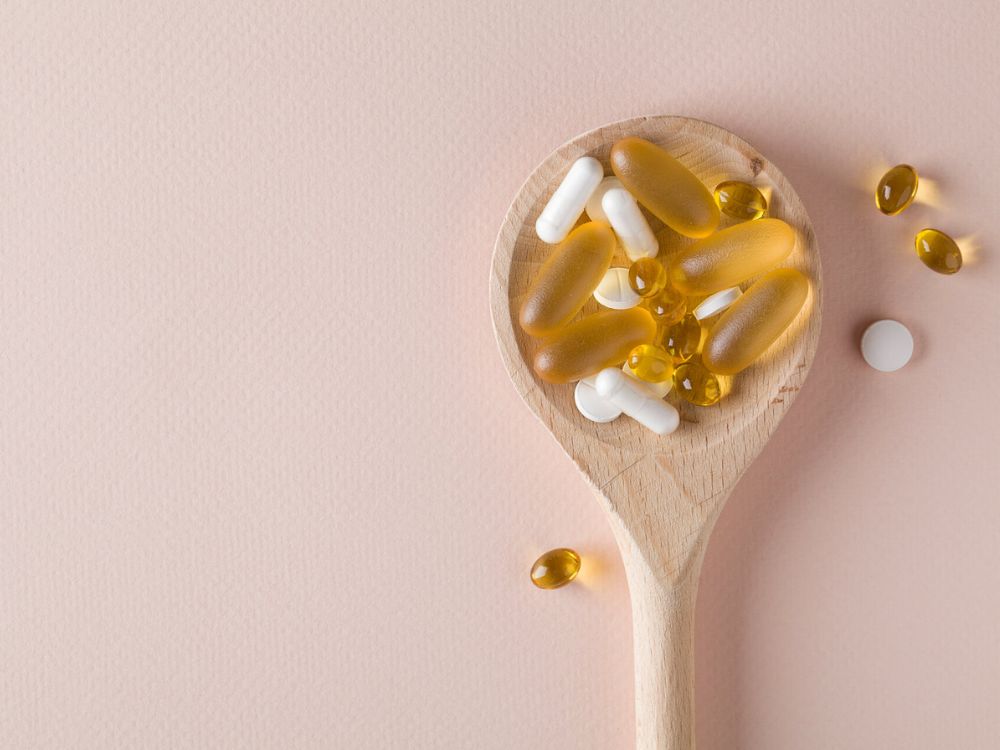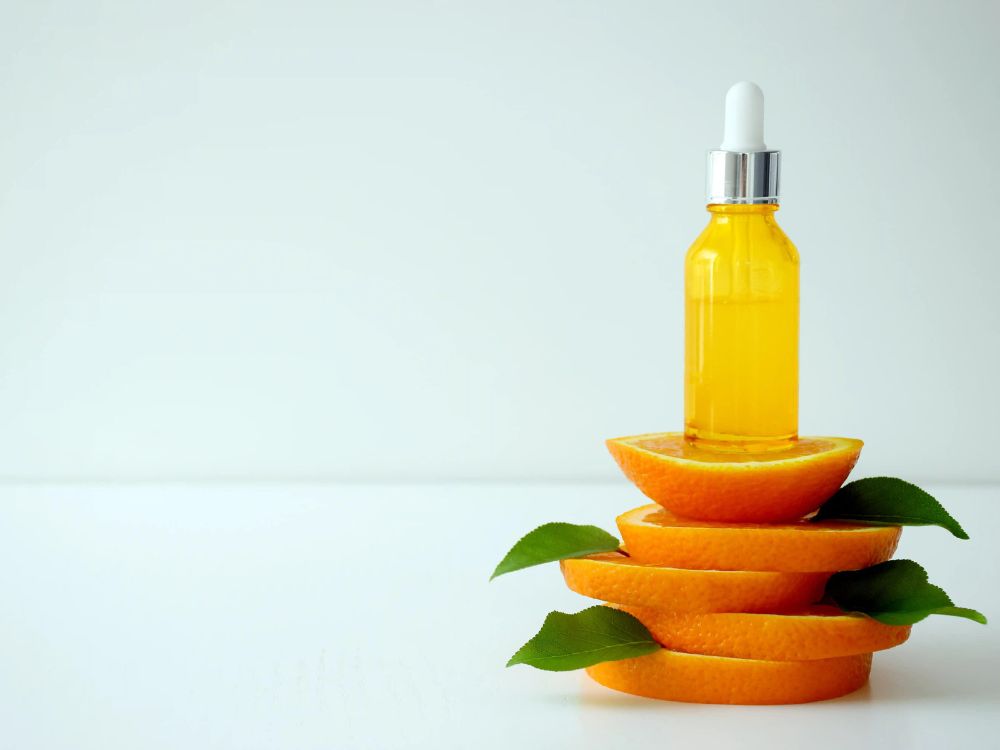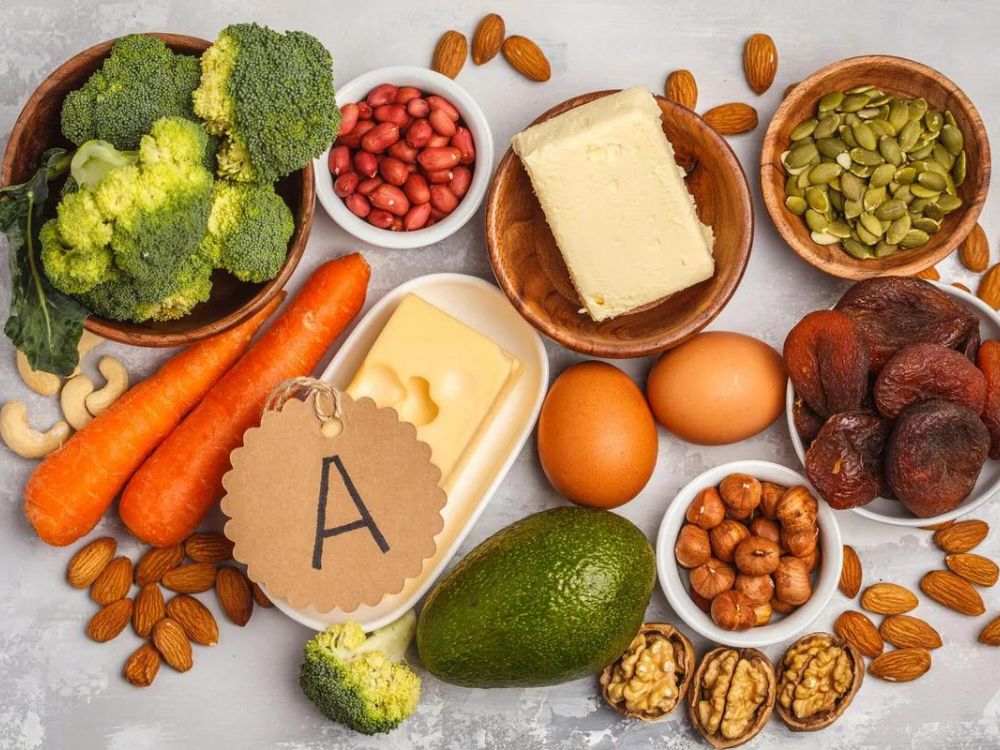The best 7 hair vitamins to increase hair length and density

No matter the type and condition of your hair, it undoubtedly needs a combination of elements and vitamins to treat it, maintain its health, and enhance it. That's why every woman should turn to these vitamins and incorporate them into her diet. As we are concerned about the health of your natural hair, it was necessary for us to present to you in this article the most important and best 7 hair vitamins beneficial for its health, promoting its beauty, primarily working to increase its length and density.
As much as your hair requires the necessary nourishment and proper care, it also needs periods of rest and relaxation. This can be achieved by treating it naturally and temporarily discontinuing the use of any harmful hair tools, heat, and hair dyes. But don't worry about your appearance, as we offer you a range of natural and permanent hair extensions, with clip-in hair extensions being the most popular. In addition, we provide high-quality, diverse options of natural hair wigs in various styles and colors to enhance the beauty of your hair, giving you an irresistible and attractive hair look.
Top 7 hair vitamins for increasing hair length and density
Over the years, your hair may face various issues affecting its growth and overall health. Research has shown that these problems can be attributed to several factors, including genetics, hormones, and diet. A balanced diet is essential for healthy hair growth and preventing hair loss. Among the most important hair vitamins are:
-
Vitamin B:
Research and studies emphasize the importance of including Vitamin B in your diet. It provides countless benefits to the body in general and hair in particular. Vitamin B nourishes the hair, maintains a healthy scalp, protects it from dryness and dandruff, and promotes collagen production, making the hair stronger, more flexible, and lustrous. You can easily find it in a variety of foods such as grains, meat, fish, eggs, nuts, and avocados.
-
Vitamin C:

The benefits of Vitamin C go beyond just boosting the immune system. It strengthens the hair by stimulating collagen production in the scalp, improving blood circulation, promoting hair growth, and increasing hair density. Vitamin C also enhances the natural color of the hair, adds shine, regulates oil secretion, and reduces dandruff and scalp irritation. You can incorporate this vitamin into your diet by consuming citrus fruits like lemons and oranges, beans, peppers, tomatoes, mangoes, strawberries, as well as turnips and broccoli.
-
Vitamin D:
Hair loss, one of the most common hair problems, can often result from a significant deficiency in Vitamin D. When the body doesn't receive enough of this essential vitamin, the keratinocytes in hair follicles struggle to grow hair healthily, leading to hair loss. Vitamin D significantly helps reduce hair loss by strengthening hair follicles and maintaining a healthy scalp, preventing dryness and scalp irritations, and reducing dandruff. You can obtain Vitamin D by exposing yourself to sunlight properly and including foods rich in it, such as fish, milk, cheese, eggs, and mushrooms.
-
Biotin (Vitamin B7):
Biotin, also known as Vitamin B7, is renowned for its remarkable role in hair growth. It plays a fundamental role in producing keratin, the primary component of hair. Biotin's effectiveness extends to promoting the production of red blood cells, which carry oxygen and nutrients to the scalp and hair follicles. This, in turn, greatly enhances hair growth, making it healthier, smoother, and less prone to hair loss and damage. To make the most of its benefits, incorporate biotin-rich foods into your diet, including milk, eggs, bananas, salmon, sweet potatoes, and almonds. You can also consider hair-specific dietary supplements containing biotin.
-
Vitamin A:

Vitamin A contains compounds like retinol and retinoic acid that have proven effective in stimulating hair follicles. A deficiency in Vitamin A can contribute to hair loss, so consuming foods rich in Vitamin A, such as vegetables like kale, spinach, cauliflower, carrots, pumpkin, and sweet potatoes, can promote healthier and denser hair growth. Vitamin A not only imparts ideal smoothness to hair, preventing dryness and split ends, but it also strengthens hair follicles, stimulates growth, and naturally soothes scalp itching and irritation.
-
Iron:
One cannot emphasize the importance of hair vitamins without addressing the role of iron in hair growth and density. Numerous studies have linked iron deficiency to hair loss, especially in women. If your body doesn't receive sufficient iron, it won't produce enough hemoglobin, hindering the delivery of oxygen to your scalp. This, in turn, contributes to hair loss. Iron primarily works to enhance hair abundance and density, combat hair loss, and promote the growth of healthy, strong, and split-end-free hair. It also contributes to improving hair color and shine. To ensure an adequate intake of iron, include iron-rich foods in your diet, such as oysters, red meat, spinach, and lentils. Additionally, you may consider adding iron supplements to your dietary regimen.
-
Keratin:
By "keratin," we refer to the protein that makes up our hair, skin, and nails. The body naturally produces keratin, and while there are many keratin supplements claiming to aid hair growth, doctors and researchers recommend obtaining keratin naturally. This can be done by consuming protein-rich foods like eggs, beans, fish, and meat. These foods strengthen the hair, making it less susceptible to damage and breakage. Keratin also provides hair with moisture and prevents dryness. It serves as a natural remedy and treatment for damage caused by heat styling and hair dyes, making the hair stronger and more resilient. It's essential to strike a balance with keratin intake, as excessive protein can have adverse effects on the hair due to protein buildup.
Conclusion:
In summary, there are numerous vitamins and minerals beneficial for hair health, promoting its growth and increasing density. However, we've focused on the most significant and accessible ones that can be naturally incorporated into your diet. We advise every woman not to overlook the importance of these vitamins in maintaining healthy hair and to include them in their daily nutrition plan.














